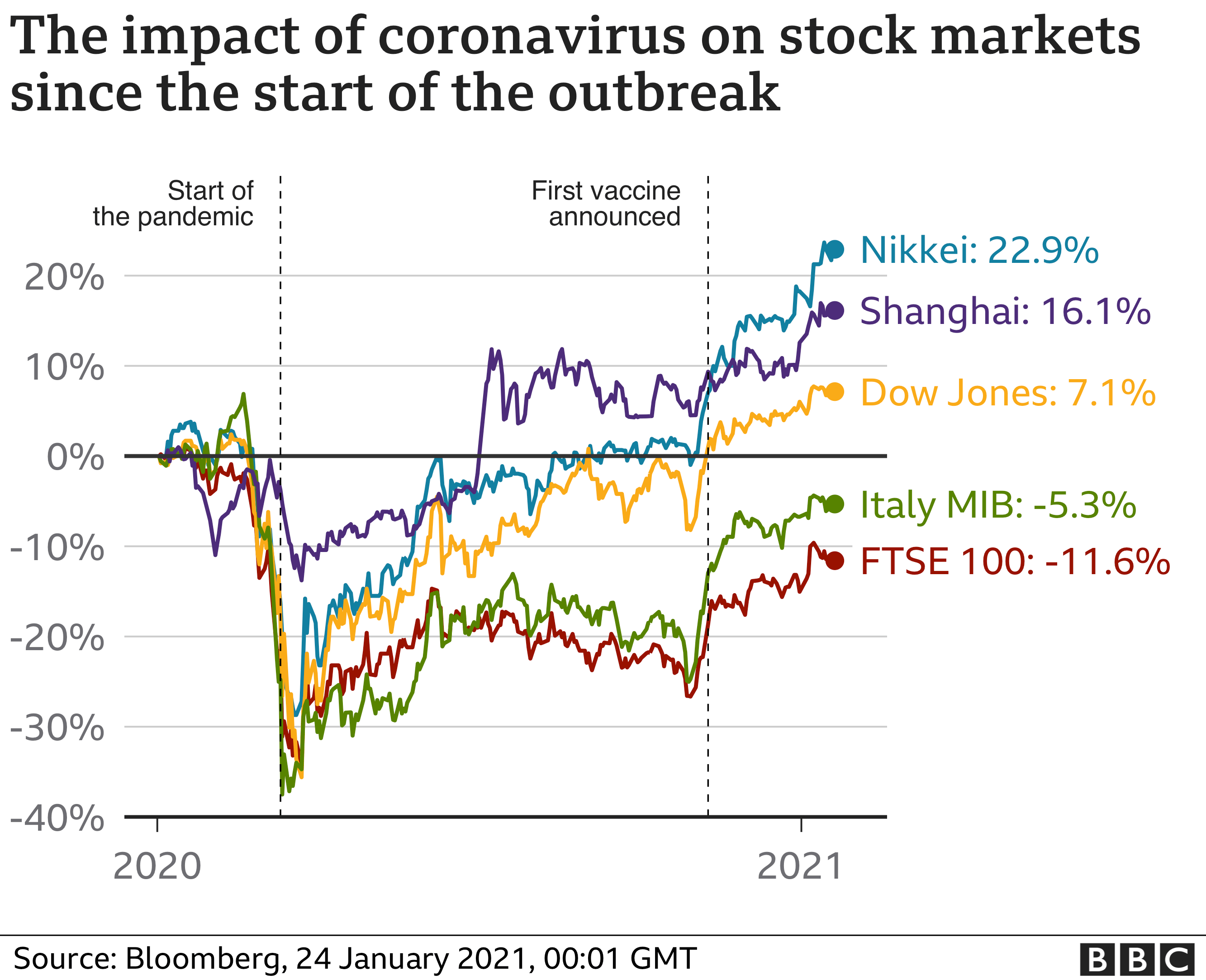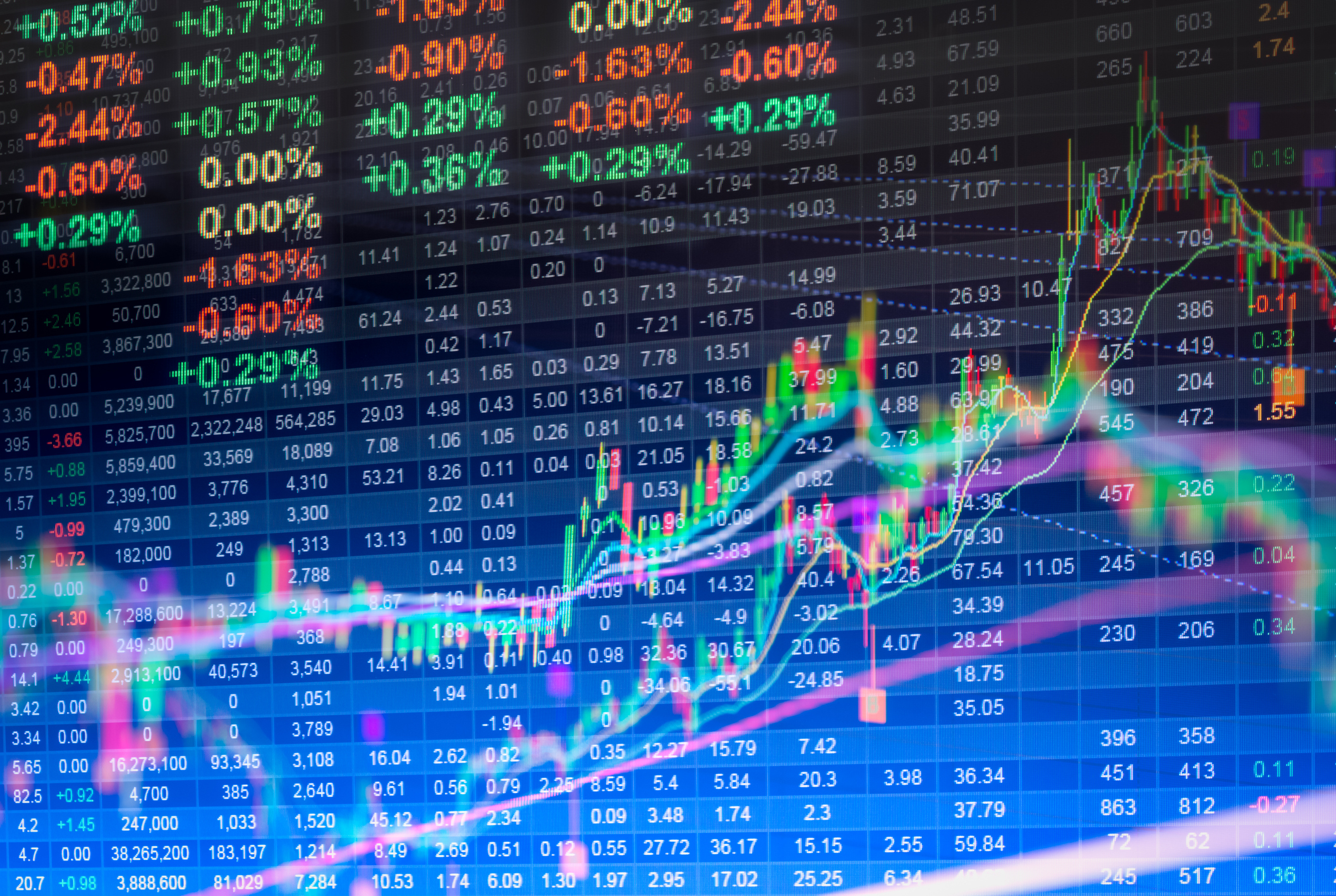
The early days of the pandemic
The first few months of the crisis, back in early 2020, saw historically steep declines across all sectors. With global markets selling off rapidly, it would have taken a bold prediction to anticipate how fast the recovery would ultimately be.
Yet, by June 2020, the market became more discerning in terms of assessing the impact of the pandemic on different sectors. Most pharmaceuticals and biotechnology companies fully regained their losses, while technology businesses benefiting from the shift to work from home also received a shot in the arm.
Meanwhile, many industries such as oil and gas, aerospace, travel, tourism, banking and insurance remained down significantly from their pre-pandemic peaks.
This gulf continued to grow throughout 2020, with the high-performing sectors gaining strongly and widening their lead on the lagging industries. The impact of economic stimulus packages across the globe were also felt.
We saw a broad range of performances in different sectors, as we are seeing again in 2022, with commodities having their best year ever, but tech getting off to a shambolic start.
The impact of COVID-19 has even varied within sectors. For example, the entertainment sector encompasses online gaming as well as theme parks and casinos. While online gaming performed well in 2020, travel bans and lockdowns took a heavy toll on casinos and theme parks.
News of imminent vaccines in late 2020 led to the anticipation of recovery, with the worst-hit industries partially regaining their market losses. Even so, the spread between the best and worst-performing sectors grew, from 27% in March 2020 to 80% in March 2021 – the widest in recent history, according to McKinsey.
The Delta variant and investing
After the initial wave of lockdowns and economic struggles, the world looked set to return to normal. Then Delta appeared around June 2021. One of the deadliest variants of COVID-19, Delta triggered some of the strongest lockdowns globally, particularly in Australia, which brought a new level of uncertainty.
At the end of 2021, as lockdowns eased again and economies gradually reopened, the arrival of Omicron once again sent shockwaves through the market, with a huge amount of uncertainty globally over its deadliness.
Markets hate uncertainty, something which investors should know, but future COVID-19 variants will likely see markets react in a more subdued manner.
Economies, companies and consumers are becoming more and more resilient with each new virus wave. This is thanks to rising vaccination rates and better preparation for the impact of new variants on societies and economies.
Covid-19’s lasting impact on the market
While variants come and go, one clear long-term impact of COVID-19 on global economies is rising inflation, which has reached 40-year highs in the US.
The world effectively shut down for an extended period of time, emptying some of our largest cities. Then we began to re-open rapidly, with a whiplash effect playing havoc on the economy.
Global supply chains seized up and costs soared as demand rose and supply fell. Most companies passed along those pressures in the form of higher prices to consumers. At the same time, hiring workers became almost impossible, with job listings in the US soaring to around 11 million at the back end of 2021.
Another significant trend that has stood out among the COVID-19 variants is the need for consumers to invest to fight soaring inflation.
With interest rates at rock bottom and many people unable to work, putting their capital to work was critical. With seemingly no other alternative investors turned towards equities. This trend saw most global markets rally.
The MSCI All Country World Index, tracking the performance of equities across some of the world’s largest economies and emerging markets, returned 33% from January 2020 to January 2022.
COVID-19 has pushed more capital into global stock markets than we’ve ever seen. Yet, the impact as central banks start to unwind stimulus and raise interest rates is still uncertain.
Looking ahead, what is clear is that economies are becoming more resilient to each new wave of the virus. Especially as vaccination rates rise and vaccine manufacturers develop more efficient vaccines and boosters.
Future variants will still have an impact, but it appears as if the market is less concerned as we begin to live with the virus. Particularly with many world leaders stating they have no intention to implement further lockdowns. Even so, the most sensitive sectors will continue to be affected by the pandemic, such as travel and tourism.
This virus continues to throw everything at global economies, but it appears that new variants are dampening economic growth rather than derailing it.









